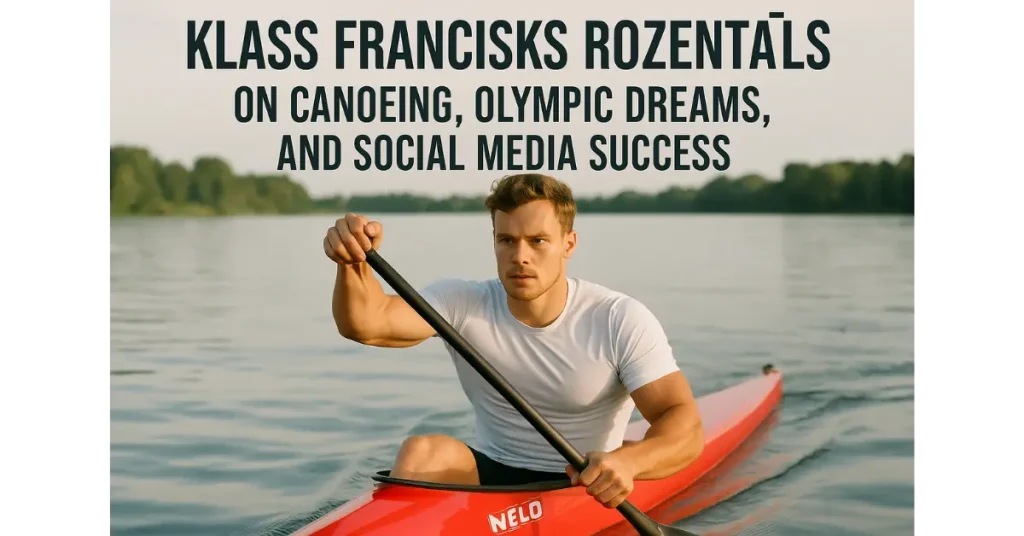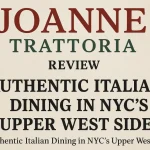The Unconventional Journey of a Digital Age Olympian
At just 19 years old, Klass Francisks Rozentals embodies the paradox of modern athletic ambition: a world-class canoeist training for Olympic glory while strategically leveraging social media stardom to fund his dreams. This Latvian-born, UK-raised athlete represents a new generation of competitors navigating the harsh financial realities of elite sports. “I only started social media six months ago because I was homeless for a big portion of my career,” Klass reveals, describing nights sleeping in a hammock on construction sites between training sessions. His journey from homelessness to viral content creator while pursuing Olympic qualification redefines what it means to be an athlete in the digital age.
From Latvia to Lee Valley: The Making of a Canoeist
Klass Francisks Rozentals (often misspelled as Francisks Klass or Francisk Klass) discovered canoeing almost by accident after moving to the UK at age six. “Canoeing wasn’t my first sports choice,” he admits. “I hated soccer.” His older brother Kurts Adams Rozentals initially took up the sport, and Klass followed—a decision that would define his life’s trajectory. By 15, he was competing professionally, with photos capturing his intense focus at the 2018 Canoe Slalom UK Championships at Lee Valley White Water Centre.
The Brotherhood Dynamic
- Klass credits his brother as his primary motivator: “My brother always has been very motivated; he is always striving to be the best… I tend to struggle more in those areas”
- Their training bond became survival when financial struggles hit: “We grew up with a single mom… we moved to the U.K. when I was around six”
- This fraternal partnership now faces unprecedented challenges as Kurts battles sporting authorities over athlete funding rights (more on this later)
Olympic Dreams vs. Financial Realities
Klass’s pursuit of the 2028 Los Angeles Olympics highlights the economic crisis in non-commercial sports. Despite being on Paddle UK’s World Class Programme, athletes receive just £16,000 annually—a sum Klass calls “nowhere near enough” when covering London living costs, equipment, and travel.
Table: The Financial Math of an Olympic Dream
Expense CategoryAnnual CostAPA CoverageShortfall
Rent (London) £12,000+ £16,000 -£4,000
Training Equipment £3,000-£5,000 Covered? -£5,000
Nutrition/Medical £2,400 Not covered -£2,400
Travel to Training £3,500 Partial -£2,000
Total £20,900+ £16,000 £4,900+
This deficit forces brutal choices: “I thought about quitting the sport multiple times,” Klass confesses. “Every time I wanted to stop, I realized that I have the potential to build my work ethic” .
The Social Media Solution: Shirtless Strategy
With characteristic pragmatism, Klass turned to content creation: “Most of my content on social media I have to do shirtless, otherwise I won’t get any views. That is just how it is.” His candid admission reveals the calculated approach behind his rapid online growth—50,000+ followers in just six months .
His Content Philosophy
- The “Purple Cow” Strategy: “If you drive down the road and see a purple cow, you’ll stop and tell friends. Find your niche”
- Confidence as Currency: “I decided to try social media because I have confidence in myself, and I don’t mind what others say”
- Team Production: “I have the world’s greatest editor (my girlfriend) and production team” (actress/model Georgia North)
Klass’s girlfriend Georgia North—herself a content creator—describes their collaborative dynamic: “We just go off a content shoot and they [Klass and Kurts] just bounce off each other… I love filming them together”.
The OnlyFans Controversy: Brother vs. Sporting Bodies
The Rozentals brothers’ funding struggle reached crisis point when Kurts Adams Rozentals (Klass’s brother and training partner) was suspended by Paddle UK over his OnlyFans account. The governing body cited “interim action” due to “allegations” about social media posts, effectively banning him from Olympic selection .
Key Controversy Points
- Kurts earned £100,000+ on OnlyFans since January 2025—crucial funding after years “on the verge of homelessness”
- Paddle UK’s policy lists “offensive use of social media” and “immoral behaviour” as potential misconduct
- Kurts’ defiant stance: “Unless something changes in athlete pay, I don’t see a way of working with Paddle UK”
Klass hasn’t publicly joined OnlyFans but supports athletes’ right to self-fund: “The amount Olympic athletes make is ridiculous… social media is so important because otherwise I’d still be broke”.
Psychology of Resilience: Confronting Laziness
Surprisingly, Klass frames his athletic perseverance as a battle against his own nature: “Sports are good for me because I’m naturally very lazy. Without canoeing, I’d be on a couch all day—the harsh truth.” His training motto reveals his pragmatic mindset: “If it’s not a problem in a year, it’s not a real problem”.
Table: Klass’s Motivation Framework
Internal ChallengeCounter StrategySupport System
“Natural laziness” Discipline rituals Brother’s example
Motivation struggles “Better than yesterday” mindset Coach/team accountability
Financial stress Social media monetization Partner (Georgia) as editor
Performance anxiety Focus on incremental progress “Wide range of friends worldwide”
The Olympic-Athlete-Influencer Hybrid Model
Klass represents a new paradigm where athletic excellence and digital entrepreneurship converge:
The Hybrid Advantage
- Funding Independence: Breaks reliance on inadequate sports grants
- Brand Building: Creates post-athletic career pathways (Klass plans a clothing line)
- Audience Engagement: “Fans come up to me—it’s crazy they watch my videos” (Georgia North)
Yet this model demands exceptional balance. Georgia notes the mental health challenges: “Social media can be misleading when young… I won’t let my kids have it before 16”.
The Road to LA 2028: Dreams and Practicalities
As Klass trains for Los Angeles, his strategy blends traditional athletic focus with digital innovation:
Dual-Track Preparation
- Physical: “Over winter, we train really hard—I’m looking forward to LA”
- Financial: Content creation sustains training without distraction: “When you’re thinking about rent at the start line, that’s not conducive”
- Legacy Planning: “Move social media to art… design my own clothing brand” post-Olympics
The Broader Crisis in Olympic Sports
The Rozentals brothers’ story exposes systemic issues:
Funding Gaps in “Amateur” Sports
- UK Sport’s Athlete Performance Award (£16k) hasn’t kept pace with inflation
- Only 5% of Olympic sports athletes earn livable wages from their sport
- Traditional sponsorships favor mainstream sports (football, basketball)
Olympic diver Jack Laugher’s “grandma-friendly” OnlyFans exemplifies how athletes are normalizing alternative funding .
Klass’s Advice to Aspiring Athlete-Creators
From his hard-won experience, Klass offers actionable wisdom:
- Start Before You’re Ready: “Post like you’re famous from day one”
- Authenticity Over Perfection: “Not everything you see [online] is real—it’s smoke and mirrors”
- Embrace Unconventional Paths: “You’ve got to do what you need to do” to fund dreams
- Cultivate Resilience: Sports teach “perseverance and not to quit too soon”
The Finish Line: Redefining Success
For Klass Francisks Rozentals, success transcends medals: “It’s health, wealth, love, and happiness.” His journey—from a homeless Latvian immigrant to Olympic hopeful and digital entrepreneur—redefines athletic excellence for the social media age. As governing bodies grapple with athletes like Klass and Kurts, one truth becomes clear: the future of Olympic sports depends on embracing, not punishing, the resourcefulness of its competitors.


